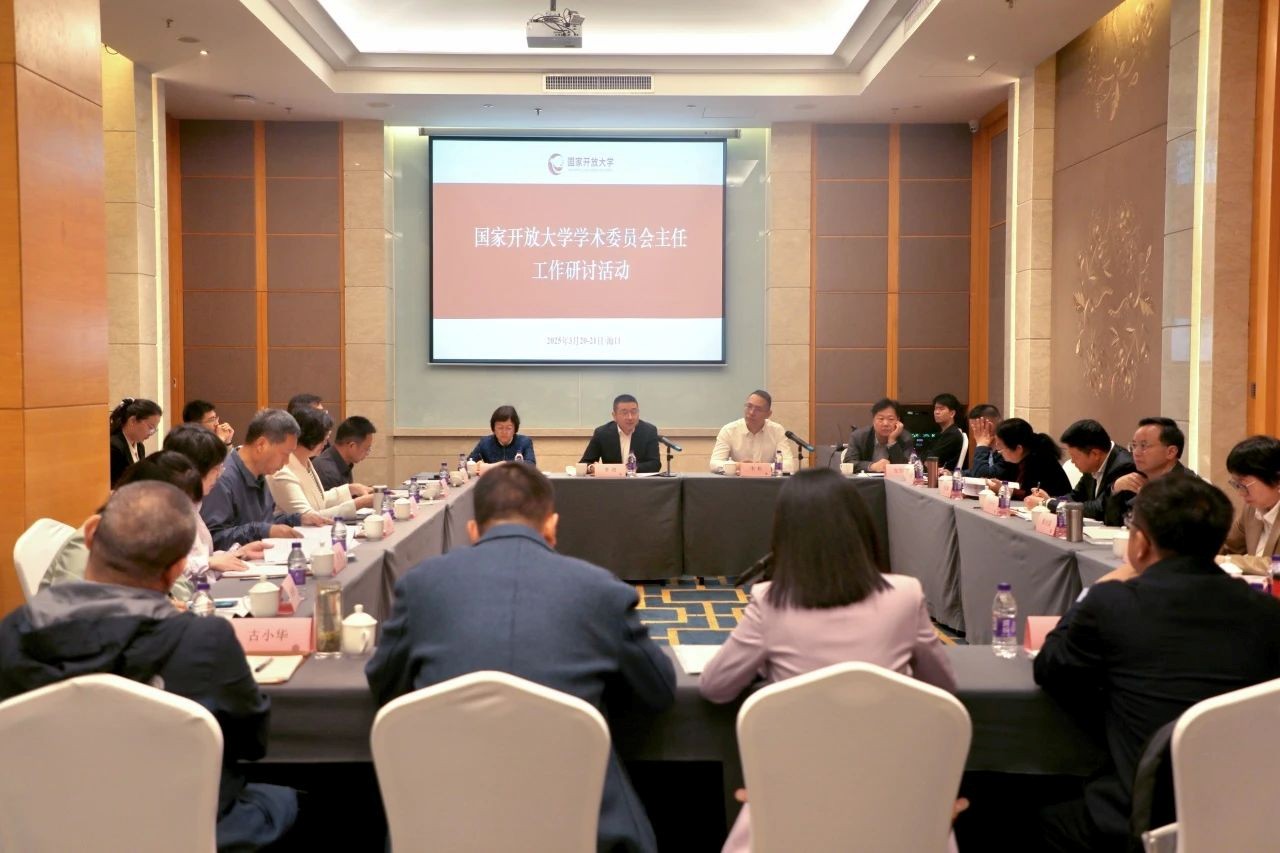 From 20 to 21 March 2025, the Open University of China (OUC) convened its Academic Committee Chair meeting in Haikou, Hainan Province. The event was attended by LI Song, Vice President of OUC and Director of the Academic Committee, LI Jin, President of Hainan Open University, and other more than 30 chairs of the Academic Committee from the Open University system across the country. The meeting focused on how to actively implement the 2024–2035 Master Plan on Building China into a Leading Country in Education and to fulfil the responsibilities and missions of the Academic Committee for the high-quality development of open education.
From 20 to 21 March 2025, the Open University of China (OUC) convened its Academic Committee Chair meeting in Haikou, Hainan Province. The event was attended by LI Song, Vice President of OUC and Director of the Academic Committee, LI Jin, President of Hainan Open University, and other more than 30 chairs of the Academic Committee from the Open University system across the country. The meeting focused on how to actively implement the 2024–2035 Master Plan on Building China into a Leading Country in Education and to fulfil the responsibilities and missions of the Academic Committee for the high-quality development of open education.

LI Song emphasised that education is a top priority for the nation and the Party, and building a leading country in education is the responsibility and mission of educators in the new era. He pointed out that the educators need to delve into the new problems and challenges faced by open universities in their development, especially the new requirements of national strategies on building a learning society and the new changes brought by digital transformation. He advocated “promoting educational reform through research, fostering innovation through educational reform, and driving development through innovation”. He encouraged all involved to bring more for practical suggestions to promote the high-quality development of open universities, and to make more efforts for building a world-class open university that is welcomed by students and recognised by society.
During the meeting, the chairs of the Academic Committee engaged in deep research and discussion around the Implementation Opinions on the Comprehensive Reform of Education and Teaching in Open Universities through Digital Intelligence Empowerment and Integrated Coordination. and the key issues, pilot areas, and working mechanisms for educational reform projects in open education, detailing the annual work plans of the Academic Committee.
The following consensus on the work of the Academic Committee and the implementation of opinions on educational reform were reached. Firstly, to strengthen organised research on major policies and enhance advisory service capabilities. Secondly, to focus on the annual key research subjects of the subcommittees. Each disciplinary subcommittee should conduct targeted research on major difficulties and key elements in educational reform, and joint contribution and sharing of quality resources, and propose countermeasures and suggestions. Thirdly, to further utilise the platform of the Academic Committee to strengthen exchanges, discussions, and collaborations. The meeting laid a solid foundation for the following step in the in-depth implementation of educational and teaching reforms in open universities.
By SUN Yu, OUC